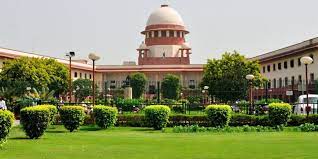
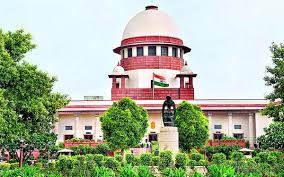
- Supreme Court of India
HELD - SECTION 164, CRIMINAL PROCEDURE CODE - During the investigation of any crime the complainant , accused witnesses or anybody else cannot request the Magistrate for his statement being recorded u/s 164 Cr.P.C . Only investigating officer is empowered in law to move an application to the magistrate for recording of statements of the witnesses , accused or of any other person u/s 164 Cr.P.C
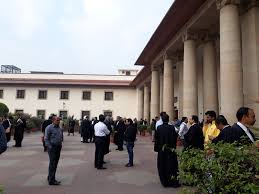
- Supreme Court Of India
HELD - " It is not only an offence but such an act creates a scar in the marrows of the mind of the victim. Anyone who indulges in a crime of such nature not only does he violate the penal provision of the IPC but also right of equality, right of individual identity and in the ultimate eventuality an important aspect of rule of law which is a constitutional commitment. The Constitution of India, an organic document, confers rights. It does not condescend or confer any allowance or grant. It recognises rights and the rights are strongly entrenched in the constitutional framework, its ethos and philosophy, subject to certain limitation. Dignity of every citizen flows from the fundamental precepts of the equality clause engrafted under Articles 14 and right to life under Article 21 of the Constitution, for they are the “fon juris” of our Constitution. The said rights are constitutionally secured. "
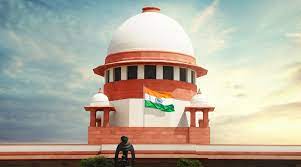
- Supreme Court of India
We agree therefore with the conclusion reached by the majority of the Bench that there is no infringement of Article 20(3) of the Constitution by compelling an accused person to give his specimen handwriting or signature; or impressions of his fingers, palm or foot to the investigating officer or under orders of a court for the purpose of comparison under the provisions of s.73 of the Indian Evidence Act; though we have not been able to agree with the view of our learned brethren that ,to be a witness" in Art.20(3) should be 'equated with the imparting of personal knowledge or that an accused does not become a witness when he produces some document not in his own hand- writing even though it may tend to prove facts in issue or relevant facts against him.
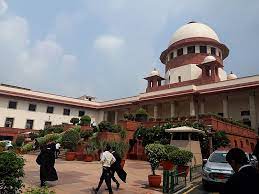
- Supreme Court of India
SUPREME COURT HELD - " In our opinion honour killings, for whatever reason, come within the category of rarest of rare cases deserving death punishment. It is time to stamp out these barbaric, feudal practices which are a slur on our nation. This is necessary as a deterrent for such outrageous, uncivilized behaviour. All persons who are planning to perpetrate ‘honour’ killings should know that the gallows await them."
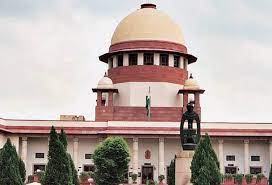
- Supreme Court of India
Sec 9- Evidence Act- Dock Identification- Absence of Test Identification Parade -
Where the accused was not known to the witness from before the incident, first time identification of accused by the witnesses in the court during trial has been held by Hon'ble Supreme Court as sufficient and acceptable identification of the accused.

- Supreme Court of India
POWER OF SUPERIOR COURTS TO ORDER CBI INVESTIGATION WITHOUT CONSENT OF STATE IS VALID IN LAW
"In the final analysis, our answer to the question referred is that a direction by the High Court, in exercise of its jurisdiction under Article 226 of the Constitution, to the CBI to investigate a cognizable offence alleged to have been committed within the territory of a State without the consent of that State will neither impinge upon the federal structure of the Constitution nor violate the doctrine of separation of power and shall be valid in law. Being the protectors of civil liberties of the citizens, this Court and the High Courts have not only the power and jurisdiction but also an obligation to protect the fundamental rights, guaranteed by Part III in general and under Article 21 of the Constitution in particular, zealously and vigilantly."

- Delhi High Court
Section 376 IPC- Sexual Relation on pretext of marriage by Married Man is not a Rape-The woman consents to have a sexual relations with a married man who promises to marry her, continues the relationship and gets impregnated, then it is an act of "promiscuity" on her part and cannot be said as one induced by a misconception of fact and does not amount to Rape.
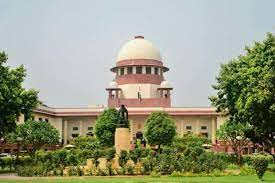
- Hon'ble Supreme Court of India
The problem with which these appeals are concerned is that many Hindus have changed their religion and have become convert to Islam only for purposes of escaping the consequences of bigamy. For instance, Jitendra Mathur was married to Meena Mathur. He and another Hindu girl embraced Islam. Obviously because Muslim Law permits more than one wife and to the extent of four. But no religion permits deliberate distortions. Much misapprehension prevails about bigamy in Islam. To check the misuse many Islamic countries have codified the personal Law, `Wherein the practice of polygamy has been either totally prohibited or severely restricted. (Syria, Tunisia, Morocco, Pakistan, Iran, the Islamic Republics of the Soviet Union are some of the Muslim countries to be remembered in this context'. But ours is a Secular Democratic Republic. Freedom of religion is the core of our culture. Even the slightest deviation shakes the social fibre. `But religious practices, violative of human rights and dignity and sacerdotal suffocation of essentially civil and material freedoms, are not autonomy but oppression'. Therefore, a unified code is imperative both for protection of the oppressed and promotion of national unity and solidarity. But the first step should be to rationalise the personal law of the minorities to develop religious and cultural amity. The Government would be well advised to entrust the responsibility to the Law Commission which may in consultation with Minorities Commission examine the matter and bring about the comprehensive legislation in keeping with modern day concept of human rights for women.

-
Carlill v. Carbolic Smoke Ball Co. 1872 2 QB 484 is the important case on the concept of general offer. In the year 1890 an infuenza broke our in the london. The Carbolic Smoke Ball company prepared a medicine called "the carbolic smoke ball" and advertised the reward of 100 to anyone who contacted influenza after having taken the doze three times daily for two weeks. The company deposited sufficient money in the bank to show thier sincerity in the subject matter. A lady Mrs Carlill bought this medicine on the faith of the advertisement and used it in the manner and period specified but even then contacted infuenza. She asked for the money. But when refused she filed a case against the company. It was held that all the essential elements of the contract were present in that case , hence she is entitiled to the amount as mentioned by the company. Held- Although the offer is made to the world, the contract is made with the limited portion of the public who come forward and performed the condition on the faith of the advertisement.
